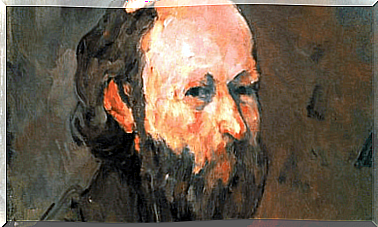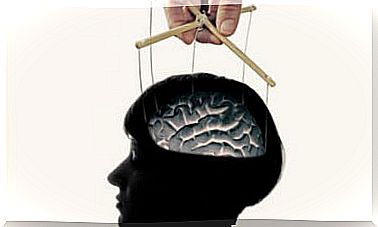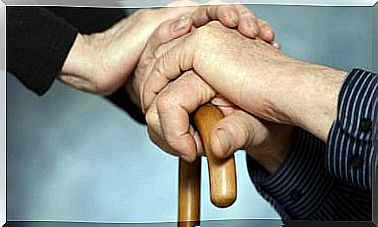Selective Memory: Why Do We Only Remember What Interests Us?

Psychologist William James stated, “If we remembered everything, we would be just as sick as if we didn’t remember anything.” Memory in general works selectively, it doesn’t remember all information in the same way, hence the concept of selective memory. Certain memories can be stored very deep in our mind and remembered in great detail, while other aspects may not be remembered well or easily forgotten.
This feature shows that selective memory is not a particular type of memory. Quite the contrary, the entire memory process is selective. So it’s no coincidence that we can sometimes remember one event from the past, but not another. Let’s delve into the interesting world of selective memory.
The basis of our identity is memory
Memories generally work the same in everyone, not just in general matters, but also in terms of private beliefs and autobiographical memories shaping our own identity. We are our memories.
But identity is not a version of all the events in which we participate, as if each and every one of the days we live were filed away in some part of our brain intact in amounts equivalent to each other. To believe this would be to assume that our memory is a kind of exact recording of what we perceive. And this is impossible: we only remember what was somehow significant to us. In this way, our identity is replete with a collection of memories chosen by our selective memory.

Why do we remember certain things and not others?
If we reflect on our memories we will come to the conclusion that there are certain moments that we remember in great detail, while others seem much more diffused and with some we have the feeling that they have been eliminated from our memory. Why do we remember certain things and not others?
The main reason is that for information to be stored and remembered, it needs to be captured correctly by our senses. And for this it is necessary that the levels of attention and perception work optimally, otherwise the information about what happened will be lost. Furthermore, repetition will be very important for the memory to eventually consolidate in our mind.
Another reason seems to lie in the phenomenon we are all victims of at some point in our lives, known as cognitive dissonance. This consists of the discomfort we feel when we hold two opposing opinions, attitudes or beliefs. And it is related to selective memory because to alleviate this negative feeling, we usually discard one of the two opinions, attitudes or beliefs that we hold so that there is no such conflict.
When we feel guilty about having taken an action that is contrary to our beliefs, such as leaving a job, we find a way to turn the situation around until we believe it really is the right decision. Although deep down we know we wish we hadn’t made that decision. So when we distort our thoughts, the memory we will have of that decision will be completely different over time.
So we remember certain events and not others because our brain tends to reject what’s unnecessary and stick with what really matters. As a form of protection, our memory tends to remember what is good and positive in order to keep negative events that cause us pain from our minds.
From all this we can deduce that the function of selective memory is to make a selection of our memories. It puts each one where it corresponds, on the one hand it leaves certain memories hidden in our minds because it considers that they add nothing to us or that they are not of greater importance, and on the other hand, it puts some in the first line, if necessary.
But we can’t forget everything that hurts, and sometimes we keep remembering for some reason we don’t know. However, science has shown that it is possible to train the mind to forget about unpleasant moments, stating that if we repress them for a long period of time, they can fall by the wayside.
Why is selective memory useful?
Not everything that hurts can magically disappear, although science has proven that it is possible to train the mind to forget about unpleasant moments.
Psychologist Gerd Thomas Waldhauser from Lund University in Sweden conducted research where he found that thanks to selective memory we can train the mind to forget difficult events.
Research shows that the longer we try to forget a memory, the harder it will be to retrieve it. That is, if we hide from our minds the pain we suffer from the loss of a family member for decades, we are unlikely to recall again the words we heard during their funeral. This strategy is very useful for people with symptoms of depression or post-traumatic stress disorder.

Sometimes overcoming the past is not an option, it is the only way to face the future in a healthy way. Mitigating memories that harm us is the greatest use selective memory has. The possibility of deliberately suppressing those memories that bind us or are the direct cause of much psychological distress is an avenue that psychology has begun to use, and not just through hypnosis.
Memory will always be selective because it is linked to our emotions. But, can we remember what we want or what memory wants?
Bibliography
- Allegri, RF, & Harris, P. (2001). The prefrontal crust in attentional mechanisms and memory. Rev Neurol, 32(5), 449-453.
- Cano Gestoso, JI (1993). Social stereotypes: the process of perpetuation through selective memory.
- Harmony, THALIA, Marosi, E., Becker, J., Reyes, A., Rodríguez, M., Bernal, J., … & Fernández, T. (1992). Correlation between the analysis of EEG frequencies and the performance in selective attention and memory in children. Latin Magazine of Thought and Language, 1(1), 96-103.
- Le Goff, J., & Le Goff, J. (1991). The order of the memory: the time as imaginary (No. 930.1). Paidos,.
- Todorov, T. (2000). The abuses of the memory. Barcelona: Paidós.









